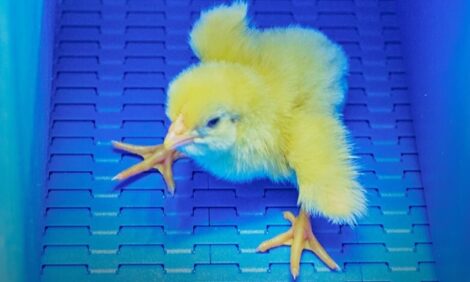



Prime-Boost Vaccination in Egypt: Field Experiences
The third order clade 2.2.1 of H5N1 lineage of HPAIV currently circulating in Egypt has been subdivided into the fourth subgroup 2.2.1.1 (group B variant strains which emerged in 2008 and disappeared by 2011) and 2.2.1.2 (group C viruses which emerged in 2013 from group A classical strains, first reported in Egypt in 2006 and still prevalent and causing severe outbreaks in poultry in 2017).Vaccination against H5N1 viruses, based on inactivated H5 vaccines, was adopted in Egypt in 2006. Recently, vector vaccines based on fowl pox with H5-insertion have been used in prime-boost schedules to induce early onset of immunity and protection against the circulating HPAIV in endemic areas. Vector vaccines are administered to 1-day old chickens in the hatchery, later followed by an inactivated H5N1 vaccine booster administration. Several examples of similar combinations of fowl pox vector and inactivated H5 vaccines in chickens, turkeys and ducks have demonstrated protection even in highly endemic areas in which H5 outbreaks have been reported. Under field conditions, in broiler farms with increasing mortality due to mixed infections of other respiratory viruses such as IBV and NDV, prime-boost vaccination by fowl pox vector vaccines followed by different H5-inactivated vaccines have induced clinical protection and lower mortalities in broiler chickens compared to those vaccinated with inactivated vaccine alone. Routine vaccination using prime-boost vaccination schedules based on fowl pox vector vaccine over several cycles have proven clinically protective in broiler chicken and turkey farms. The early cellular immune response induced by fowl pox vector vaccine, through the presentation of HA peptide to MHC class1 and the induction of cytotoxic CD8, permits a stronger booster response to the second inactivated H5 vaccination which is directed at the immunogenic HA protective antigen. Thus, the use of a prime-boost vaccination on a routine basis provides a sufficient level of protection to minimize HPAI virus shedding and decrease the viral load, leading to a successful and effective HPAI virus control strategy.
Ali Hussein Ahmed HUSSEIN
Professor of Virology Department at Veterinary Medicine, Cairo University, Egypt
_________________________________
Information from the Avian Flu Forum hosted by Boehringer on April 2017








